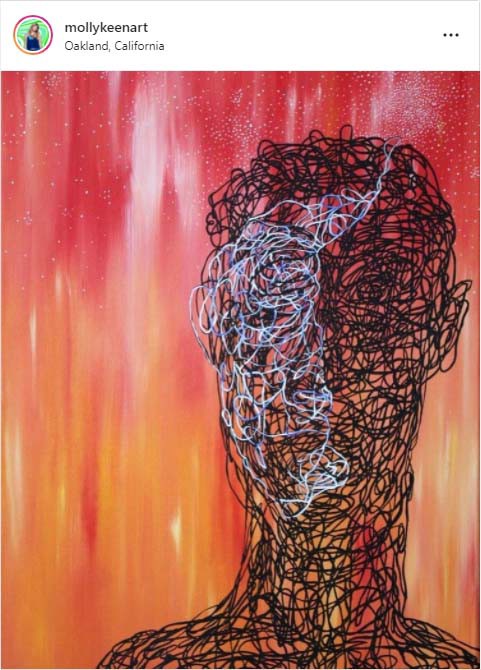What I Learned in 2021
Explore. My 2021 Word of the Year.
In the year of lockdowns, social distancing, Zoom dates…I landed on this word, of all words, to guide my purpose for the year. To me, the word explore embodied giving myself permission to fail, leaning into resistance, and ultimately, following my heart to fully live out my values and commitments.
Despite the juxtaposition that was my word and the world, I had plenty of safe adventuring. I explored in the true sense of the word, beginning van life, traveling from Toronto to Vancouver Island, then down south into the Californian desert.
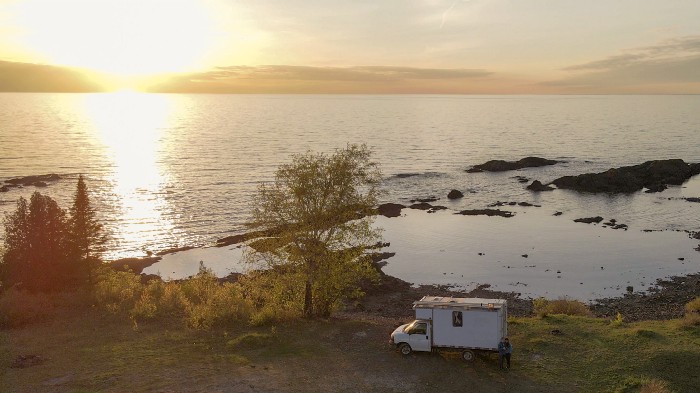
Despite the fear that others would judge me as being foolish, I shared my journey publicly and as authentically as possible (it’s hard to be on camera). I explored different mediums — most resilience-building of them all was YouTube.
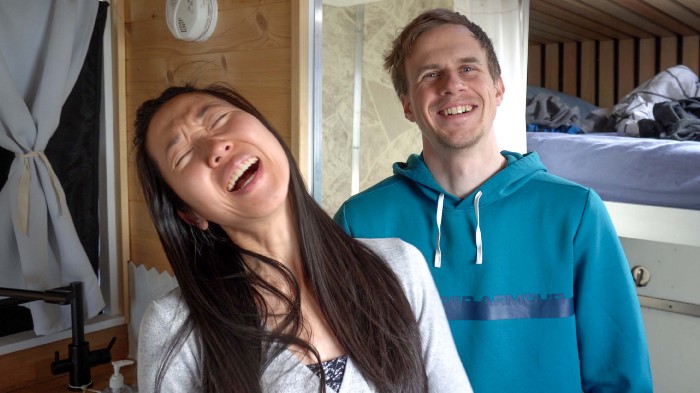
Despite the fear of failure, I quit my job to focus on my coaching business. I explored various avenues for coaching, from business coaching, to embodiment coaching, to directing a life skills masterminds for students in BETA Camp. (This was a dream come true. When I was 9 years old, I drew my future self: a teacher with long, blonde curly hair.)
Through it all, I gave myself permission to just try. Each moment opened me up more and more, like a water lily upon seeing the sun every day. Each moment shifted my perspectives, helped me feel deeply, and taught me life lessons.
Of these lessons, I’m offering you my top three learnings. These learnings kicked me in the gut, left me frozen momentarily in time, and as I melted back into reality, I felt a completely new symbiosis with the questions, “Who am I? Why am I here?”
Giving Myself Permission to Fail
On July 7, my eyes violently blinked awake to the pine-paneled ceiling of our family’s home in Germany. I struggled to catch my breath and my top was drenched, as if I had just hiked through a muggy forest or eaten a too-large, meat-sweat-inducing burger.
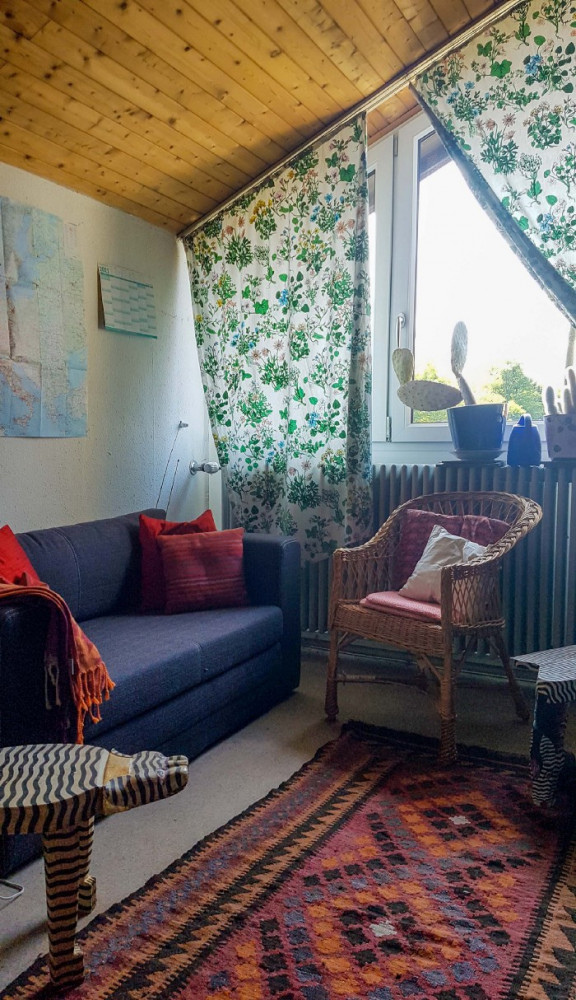
Or, as if I had just woken up from a bad dream and in this dream, I didn’t pass my coaching certification from my training school.
I closed my eyes, ineffectively shielding my retinas from the blinding sunlight, and thought, “It’s just a bad dream. I never fail anything.” I rolled over and went back to sleep as jetlag washed over me.
I had forgotten about the incident until a few days later when a friend announced that they had passed! After congratulating them with champagne and firework emojis, I opened my laptop, excited to receive my results. As a straight-A student and perfectionist, I did not expect anything less than a pass.
Scrolling, scrolling, I found the email. It was dated July 6, the day before my rude awakening. In today’s world where surprises like baby announcements are ruined by Subject Headers and Preview Texts, I saw that I didn’t pass.
My subconscious must’ve picked it up somehow and slotted it into my dream — I had skimmed my inbox the day it arrived and didn’t notice this particular message.
Hunched over with my clammy hands on the trackpad, my eyes crazily ingested the email at top-speed. Then, my heart fell to my stomach and burst aflame. I felt anger like I had never felt anger before.
How could they do this to me?
I defaulted to searching for faults. It’s the rubric, it’s their way of teaching, it’s the mixed messages they gave me in practice recordings. It’s everything and everyone else, but me.
Of course, I knew I was being a baby. But no matter how much…
…tiramisu (a tub of mascarpone in Germany costs $2.50 versus $10 in Canada!),
…positive self-talk (“It’s okay, you’re not perfect. It’s the journey, not the destination. You won’t even remember in five years.”),
…or googling of “overcoming failure”
…none of it changed the way I felt about my result.
Fast forward through the stages of grief and many messages to my support network later, I finally hit the integration stage.
Why did this happen to me?
I learned that when we’re exploring, pushing our boundaries and our limits, we all will inevitably fail. Coaching was new territory for me and despite how determined I was to build mastery in the craft, it was still one of the hardest things I had ever done. So as I explored and pushed myself, well, I failed. What made moving past the failure so difficult was my inability to let go of perfection. Through this, I learned that the more we try to grasp for perfection — passing everything the first time, every time — the harder it was to get started, let alone make progress and move on from imperfection.
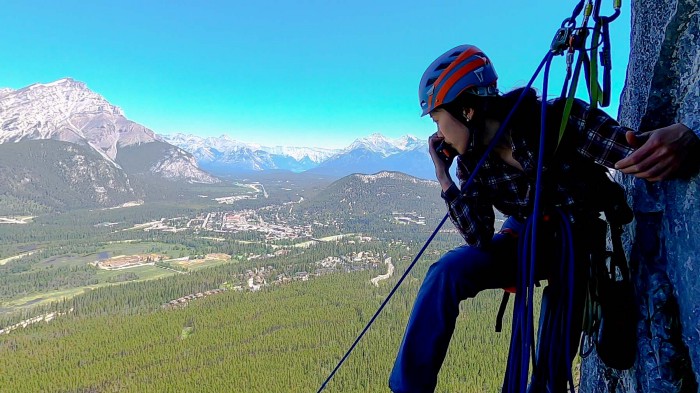
I believe that we are all mirrors in this world and here’s a quote that exemplifies that.
“We don’t see things as they are; we see them as we are.” — Anaïs Nin
When we expect perfection from ourselves, we end up holding the same expectations for those around us. Our life partner, family, friends, teammates, clients, teachers, students. Setting high expectations is the quickest path to failure and thus, anger and disappointment.
I needed this failure to learn how to let go of perfection; give myself permission to fail; and to give myself grace and compassion, the same that I would give to anyone else…besides myself. But it doesn’t matter what you provide for others because they will see how you treat yourself, and they will believe that THAT is how you’ll treat them. When there is incongruence between the outside and the inside, it feels inauthentic.
Newton’s Third Law states that for every action in nature, there is an equal and opposite reaction. Grasping for perfection means you’ll be met with the equal and opposite reaction of resistance. The resistance to accept failure, and move on. Along the same vein, resisting what needs to be done will only cause it grow.
Leaning into Resistance
What you resist is often what you need. The easiest way to pinpoint resistance? Look for the word “should” in your thoughts and speech.
“I should let it go, but…”
From inconsequential events, to life-changing circumstances, this thought showed up for me in various ways. I almost said no to an invite for a Thanksgiving potluck when I was in the depths of my loneliness during van life.
“I know I should go…”
It was the exact invitation I needed, but it was easier to withdraw into my shell. In that moment, to overcome my resistance, I had asked myself, “What is it that my body — not my brain — needs right now?” I couldn’t ignore the resounding reply, “People! Friends! Community!”
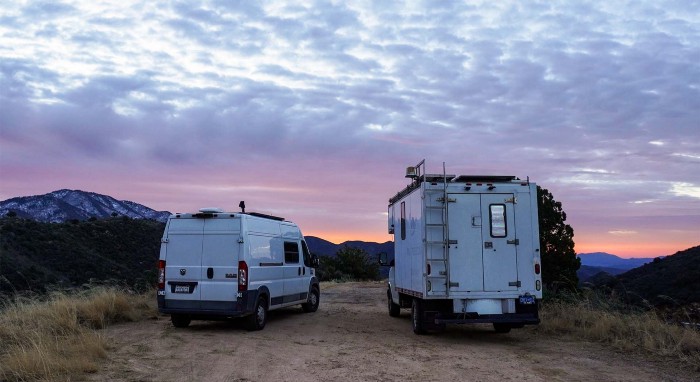
What about life-changing circumstances?
Inside me, I had kept a box sealed and hidden away. Opening it up would mean coming face to face with forgiveness. That meant processing the trauma that I experienced earlier on in my life.
For the last decade and more, I had jampacked my schedule with work, courses, and activities…all distractions masked as personal growth initiatives and helping others (aka. people pleasing). What I really needed was not another certificate to feel accomplished, or more Instagram likes to feel worthy. What I really needed was to be able to close my eyes and not be afraid of what’s there. I needed to be able to turn inward, see, and be with all those deeper, gut-wrenching “ughs” and demons that I resisted and allowed to fester and grow inside of me.
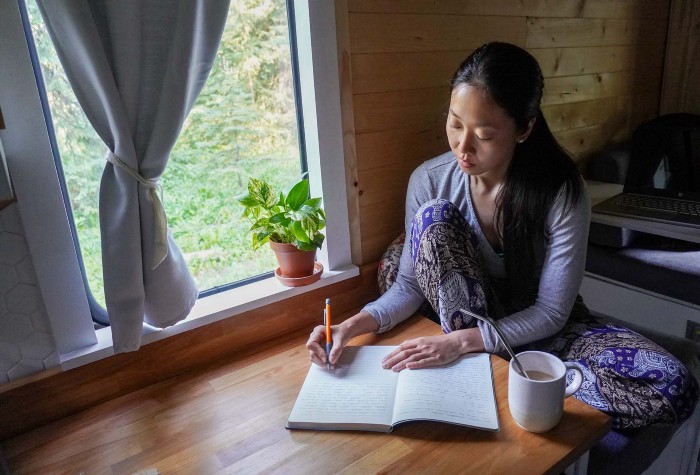
In scholarly fashion, I came upon three books that changed my life:
- Trauma-Sensitive Mindfulness: Practices for Safe and Transformative Healing by David A. Treleaven
- Adult Children of Emotionally Immature Parents by Lindsay C. Gibson
- Not That Bad: Dispatches from Rape Culture by Roxane Gay
It began with validation — which all three books offered — about my experiences. Just labeling it “trauma” brought an intense relief because up until that point, I had resisted calling them that because they were not that bad. Understanding my parents also helped me understand my actions and with that understanding, I started to forgive myself…and forgive them along the way too. I thought I was enlightened when I realized that they, too, experienced their own trauma. You can only imagine how mind blown I felt when I carried that realization further to my grandma, grandpa, their parents, and so on up the lineage.
I believe that our feelings of safety and worth in this world are proportional to our self-acceptance and self-love. To achieve this takes an unconditional compassion of the self and to do this, we must face our traumas. Trauma takes time (so much time!) and energy to process. It’s not a finish line that we cross, but rather, it’s an ocean with waves that constantly ebb and flow, lapping at our shores of consciousness. Sometimes the tides are high, and sometimes the tides are low. We must give ourselves the permission to not be perfect, to lean into the discomfort so we can heal.
As you begin to heal, I promise that closing your eyes becomes easier. Suddenly, simply being becomes easier as the energy you had expended to keep that box sealed and hidden away is freed. Then, you’ll have so much space inside to grow. Naturally, you’ll find yourself climbing out of your shell. You’ll live out your story — your truth — where it’s all about saying yes to your heart.
Following My Heart
The phrase, “Follow Your Heart” — what does it stir up inside you? We all know what it might mean, cognitively, to follow your heart, but what the heck does it feel like?
I’m all about feelings and embodiment nowadays because following my thoughts and my brain culminated in me uprooting my life at 30. I also know — as do you — that even if you know you must do something, you won’t do it unless you feel like it.
The Life Coach School proposes a framework where your thoughts can drive your feelings, which I absolutely love and use regularly. But there’s also another, arguably, faster way: Embodiment.
Embodiment is physical sensations in your body that may or may not offer you messages. It could also be a visualization, like shape, colors, or metaphoric imageries in your mind’s eye, or an energetic channeling in your body. Embodiment stems from the belief that intelligence does not reside only within the brain, but also, throughout the entire body.
Let me tell you a story.
It seemed to me that children tended to have an easier time with connecting to their body and creativity. So, I embarked on a quest to figure out when we “lost” embodiment. With a scientific methodology that would blow any study out of the water, I started coaching a pair of siblings, aged 13 and 16, to help them with school stress. What I found blew my mind — or well, my body, but that sounds weird.
With the younger child, when we opened the can of worms called procrastination, I shoved my conditioned urge to explore their thoughts, their brain, aside and asked instead, “I’m curious, what is your body feeling right now?”
They looked up. Blinked. Then, meeting my pixelated eyes on their Zoom window, they said, “I feel like running. Like, when I’m about to click on the next YouTube video, I can feel my legs wanting to move.”
Wow. We closed the conversation with all the worms contained and they were happy with their newfound clarity and plan to move forward.
Next, I coached the older sibling on a similar topic. This time, however, the Procrastination Can exploded and the worms were everywhere. No matter how much giving of space, shining of light, unattachment from me, they could not answer the question, “What is your body feeling right now?”
It seemed like they were caught up in their thoughts. An endless loop of whys, explanations, patterns, and stories, of how this could be, rather than what their body is feeling. A black nest of spaghetti. There was no connection between mind and body, thought and movement. And the disadvantage was palpable. The conversation closed off with superficial — albeit, beneficial — action steps. Superficial action steps often lead to deeper realizations after coaching and that was my hope here.
My conclusion: Between the ages of 13 and 16, we lose our sense of embodiment. Discussion: More research to be conducted.
What does this have to do with following your heart?
Following your heart is not something you think about. It’s something you feel for. When you lose touch with your body, as I had for several years, you end up following your mind.
And minds sabotage. Bodies don’t.
Minds get stuck. Bodies don’t.
Minds are easily influenced, distracted, conditioned. Diving into our bodies slow us down, bring us laser focus, and help us choose intentionally.
And as previously discussed, diving into our bodies is no easy feat when there are demons there waiting for you. On top of opening those sealed, secret, hidden boxes, we have to develop bodily awareness through intentional movement and we have to practice noticing how we physically feel. Simply checking in regularly with, “How does my body feel right now?” is usually sufficient.
In this last year, whenever I was at a crossroads of choosing yes or no, stop or go, and my mind turned into a tangled force of spaghetti, I would close my eyes, bring awareness to my heart, to my lower belly (the hara, the center of intuition), and ask, “What is it that I — my body — need right now?” And the answer would always arise and bring me closer to living out my truth.
My Word of the Year for 2022
Failing freely and inelegantly to fight perfectionism. Facing resistance head on to heal. Following my heart to fully live out my values and commitments. All of this amounted to an abundance of growth for me in 2021. Explore truly lived up to its word and carried me through all that was ugly, all that was beautiful, in the past 12 months. Even more, I’m grateful that I can share my learnings here with you.
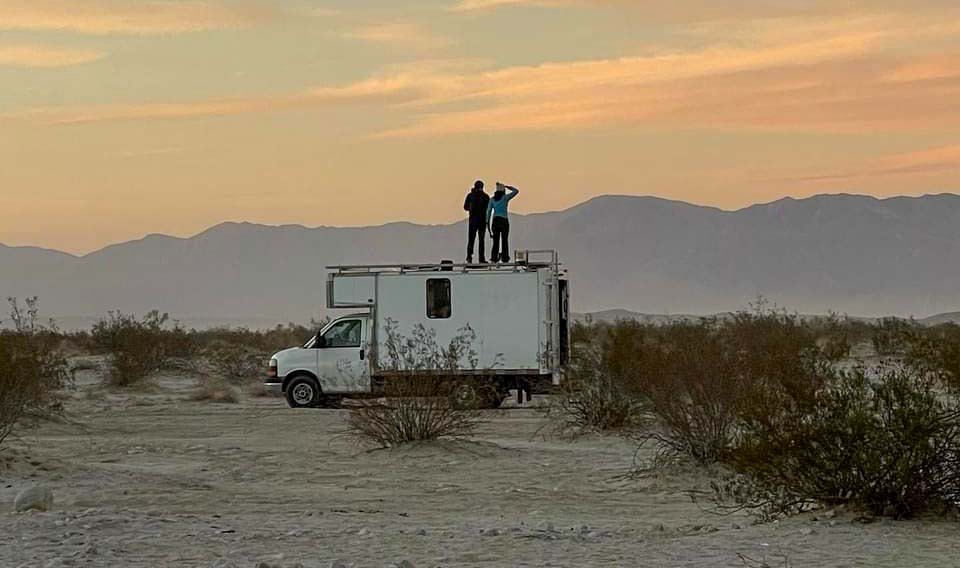
Looking forward into 2022, knowing that there will be evermore changes in this world, I’ve selected yet another E word to guide my purpose. This year, I will flow with ease and I will emanate ease for others. I will ease into changes, I will embody ease in the face of resistance. There are enough hardships and hard-asses in this world. Let’s be easy on ourselves because with ease comes space, and with space comes even more room to grow.
